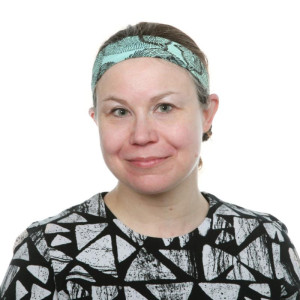Biography
Autumn 2025 Teaching (part-time) at the Department of Language and Communication Studies, teaching the KOPS1012 Basic skills support for adults in language education (5 cr) course
2019-2025 Doctoral research: Access to (M)ALL: Redesigning a literacy support serious game app in a participatory design approach with Finnish language and literacy teachers of
adult migrants with limited/interrupted formal education https://urn.fi/URN:ISBN:978-952-86-0587-4
Adult migrants with limited and/or interrupted formal educational backgrounds, known as LESLLA learners, are at the heart of this study, which focuses on adult late literacy education in Finland. LESLLA learners are faced with the enormous challenge to simultaneously learn oral language skills and first-time literacy skills in a second language. Due to universal digitalization, LESLLA learners also need digital skills to navigate daily life and learning contexts. My doctoral research explored the role of technology in Finland’s LESLLA education by examining teachers’ experiences and views. The findings highlight the need for accessible digital devices and learning platforms, calling for concurrent investment in innovative learning technology design and user skill development. Employing participatory design with LESLLA teachers, this research also included a usability study to redesign a literacy support game app. Teachers proposed a LESLLA-specific customization, emphasizing the importance of trauma sensitivity, reading comprehension, and integrated vocabulary training. This study has implications for the design of LESLLA-specific online learning environments. The findings further accentuate the potential of target group–specific technology-mediated learning and teaching for LESLLA education. This research also raises awareness of LESLLA learners’ underrepresentation in ethical research debates. Certain participation practices, such as written language use and the requirement for informed consent, a lack of financial reimbursement or alternative compensation, pose significant ethical dilemmas. The findings also highlight the risk of default vulnerability labelling. Contextualizing research ethics and acknowledging potential participants’ realities is essential to advancing LESLLA learners’ inclusion in academic practice and knowledge production.
2018-2019 Project researcher in the AllRead team (https://doi.org/10.17011/jyx/dataset/82412): Responsible for the design, realization, and field-testing of an English-language digital literacy support game pilot version for Finnish-speaking primary school children
2018-2024 Contact person of the Language Campus Blood(Donor)Group
Research interests
My main research fields are educational linguistics and technology. I also have a strong interdisciplinary research interest in ethics and sustainability. I have been involved in LESLLA (Literacy Education and Second Language Learning for Adults) research, specializing in technology-mediated initial literacy training and teaching of adult migrants with limited/interrupted educational backgrounds. In my doctoral research I explored and co-designed with LESLLA teachers digital literacy support for adult emergent readers of Finnish as a second language. Further, based on my own experience, I disseminated selected ethical dilemmas, focusing on informed consent procedures and reciprocity to discuss how prevailing issues can affect participation and thus sustain underrepresentation of LESLLA learners.

